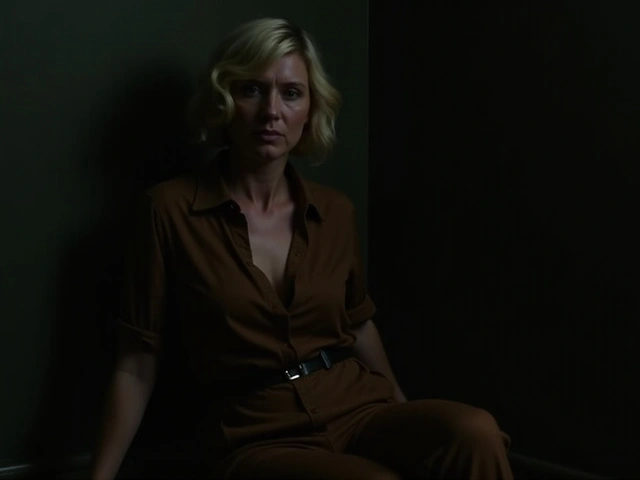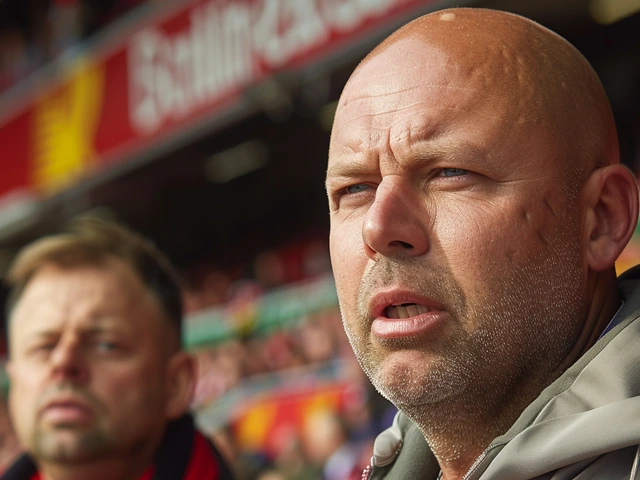
The landscape of modern football often presents tales of individual brilliance shadowed by team dynamics, and the case of Harry Kane at Bayern Munich is an instance steeped in disappointment and unmet expectations. Wrapped in aspirations to lift trophies with the Bavarian giants, Kane’s inaugural season has ended sourly, with an unfortunate zero in the trophy column.
Harry Kane’s Prowess Amid Team Struggles
In the echelons of football, Harry Kane’s arrival at Bayern Munich sent waves of expectations across Europe. Not only was he regarded as one of the sharpest shooters in the Premier League, but his track record of consistent goal-scoring had fans and pundits predicting a shiny array of silverware at his new home. However, despite Kane’s personal success on the pitch, netting an impressive 44 goals, the season concluded without silverware. It raises the curtain on a scenario where individual brilliance shines, but collective synchronization flickers.
Team Inconsistencies and Missteps
While Kane’s boots did the talking on the pitch, Bayern Munich’s overall performance stuttered. The term ‘inconsistent’ has surfaced repeåtedly in discussions around the club’s season. From misplaced passes to strategic blunders, the team’s journey was marred by uneven performances. Analysts and fans alike pointed out that in several key matches, the team failed to harness their strategy effectively, leading to avoidable defeats. Notably, in the UEFA Champions League, the team’s aspirations fizzled out in the semi-finals.
Rio Ferdinand's Perspective
Rio Ferdinand, a former Manchester United defender and a respected pundit, has expressed his views explicitly, suggesting that Harry Kane has been ‘let down’ by his teammates. According to Ferdinand, while Kane’s goal tally was ‘ridiculous’ – a testament to his superior attacking prowess – the team failed to rise to the occasion. Ferdinand’s critique brings to light the frustrations often felt by star players who despite their best efforts, find the collective aim drifting away.
Owen Hargreaves’ Critique of Coaching Decisions
Adding to the narrative, Owen Hargreaves, another revered name in football analyses, directed his criticism towards Bayern Munich’s coaching tactics, specifically under Thomas Tuchel. Hargreaves highlighted a particular instance in the Champions League semi-final against Real Madrid, where Tuchel’s decision to substitute Kane before the final whistle was questioned. This move, as per Hargreaves, might have been costly, considering Kane’s ability to influence high-stakes matches.
The discourse around these strategic decisions raises crucial questions about game management and resource utilization. Whether it was overly conservative play or mismatched player roles, the coaching strategies certainly warrant a review given the unmet expectations of the season.
Looking Forward
As Bayern Munich looks to regroup and strategize for the forthcoming season, the lessons learnt are stark. For players like Harry Kane, whose commitment and skill are undisputed, the hope would be a more unified team effort. Adjustments in team dynamics, strategy formulation, and perhaps a reassessment of tactical approaches will be essential. The challenge lies not in harnessing individual talent, but in channeling it collectively towards the goal every football team dreams of – lifting trophies.
In conclusion, while Harry Kane’s skill set was a glowing beacon in Bayern Munich’s campaign, the shadow cast by collective shortcomings has been poignant. As the team introspects, the outlook of enhancing team mechanisms and fostering a winning ethos may just be the silver lining needed as they march into future battles on the football pitch.





